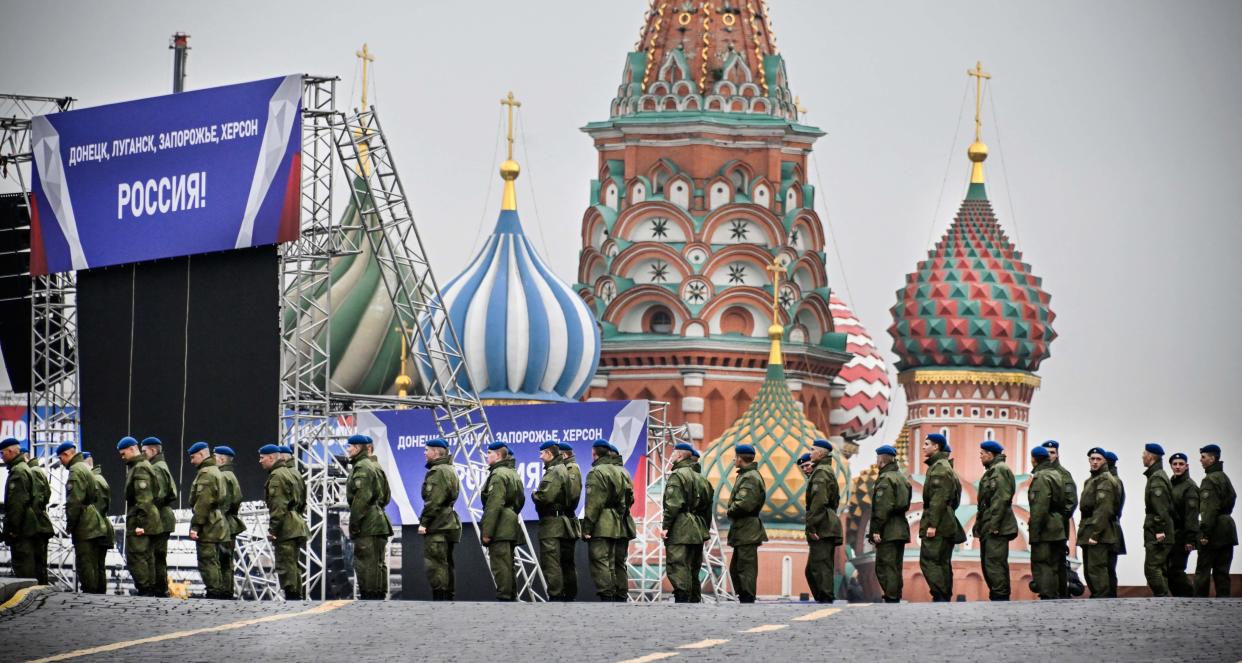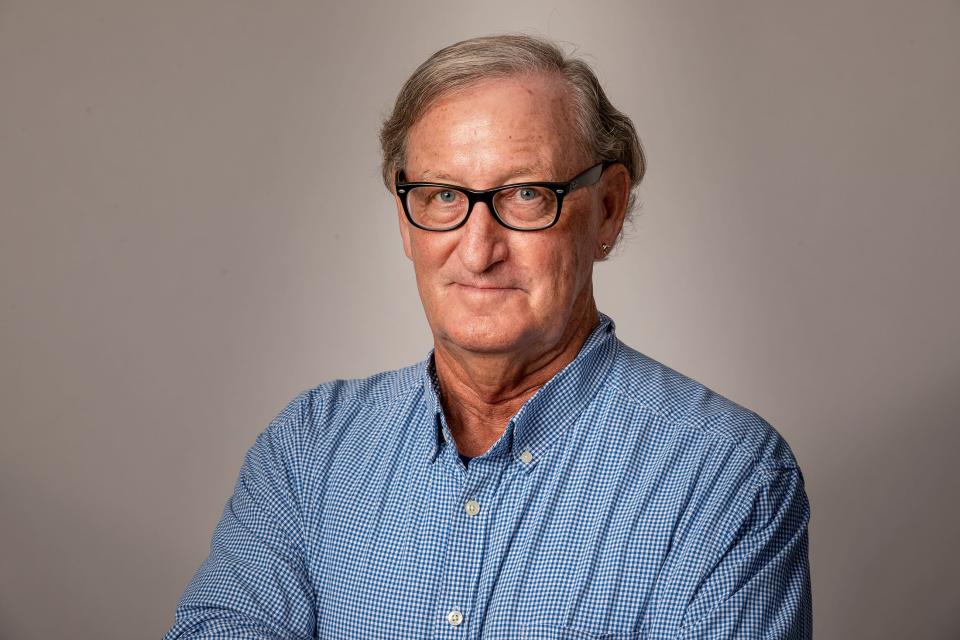Bloodlands: Why the US role is so critical in Europe | R. Bruce Anderson

On the trip, we spend almost all of our time here in what we call the “Old East,” referring to the “old” East Germany, or what used to be the “German Democratic Republic.”
The GDR went over the high side in 1991, collapsing with the rest of the communist authoritarian systems controlled by the Soviet Union (along with the old Soviet Union). But the influence of Russia in this part of Germany did not start with the end of World War II.
We took the Deutsche Bahn – German rail – out of Fürstenberg, down through Berlin and Dessau, and on to Leipzig, in that old industrial heartland of the East, then turned our heading toward Thuringia, to Weimar and Erfurt. As we rolled westward, the landscape began to change a bit – hills, occasional tumbledown castles perched above the tracks, which had once stared down at the trade roads in this part of central Europe.
And with the change in scenery came a change in the architecture as well. In eastern Germany, the ubiquitous steeples are often onion domes rather than sharp needles pointed at the heavens, signaling the cultural influences of even farther east. Both the Duchess Anna Amelia and her son, Carl August of Saxe-Weimar-Eisenach, attracted the best minds of Europe to tiny Weimar, including many Russians.
But it’s been a very long time since these enlightened folks ruled Thuringia. Or that any real collaboration between Germans and Russians has been possible. The brutal, bloody and genocidal invasion of the Soviet state by Hitler’s Germany in 1941 to 1945 closed that door, probably forever.
It is estimated that almost 20 million Russians lost their lives. The occupation of Eastern Germany that followed was logically reasonable, even if the politics that it spawned created a whole new helix of problems.
Voice of the People (May 12, 2024): Florida meatheads ban lab-grown meat
The Russian offensives in Ukraine have posed a major enigma for Germans. There are strong vestiges of the Cold War mentality – that Russian expansion under a dictator must be resisted in every possible way. But there is also a deep sense of the past, of the horrors of the Second World War, that Germans do not and cannot pardon.
Germany has taken a firm stand to defend Ukraine’s independence and fueled an EU policy of military aid and heavy sanctions against the Russians. But there is hesitancy as well. The reality of an active German alliance with Ukraine against Russia is almost unthinkable to many Germans, given the unfathomable horrors of the last century.
The United States also has a part in the bloody and painful history in the Europe of the 20th Century, but ours has been that of the crucial positive force that resisted and fought and bled to preserve democracy, liberty and a republican norm.
In the face of the Nazis, we poured our immense energy into defeating them. With the Soviets, in the conflict that followed, ours was the voice of global reason and collective containment. In situations like the Ukraine war, Europe requires American leadership. Not because they are weak or defeatist, but because their own history prevents them from decisive action.
Ravensbrück: A stark reminder of the politics of exclusion | R. Bruce Anderson
We have never been more needed.
But there is a subtle and growing weakening of American resolve. Though we finally managed to pass a spending bill that will aid Ukraine (and provide critical aid to both Israel and Taiwan) it seems we have somehow grown tired of the leadership role.

Division at home seems to be leading us to a crisis of determination across the sea. Defending democracies from autocrats and dictators is no easy job, but we’ve been doing it for over 235 years, depending on your history. Feeding the urge to crawl into a hole whimpering “America First” – in the sense that Charles Lindbergh and his isolationists tried to do at the start of World War II – is to surrender.
Not only to surrender Europe, but to surrender ourselves.
R. Bruce Anderson is the Dr. Sarah D. and L. Kirk McKay, Jr. Endowed Chair in American History, Government, and Civics and Miller Distinguished Professor of Political Science at Florida Southern College. He is also a columnist for The Ledger and political consultant and on-air commentator for WLKF Radio in Lakeland.
This article originally appeared on The Ledger: Bloodlands: Why the US role is so critical in Europe | Bruce Anderson

